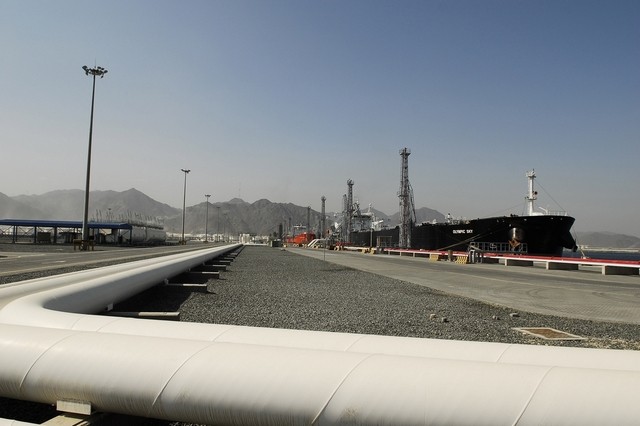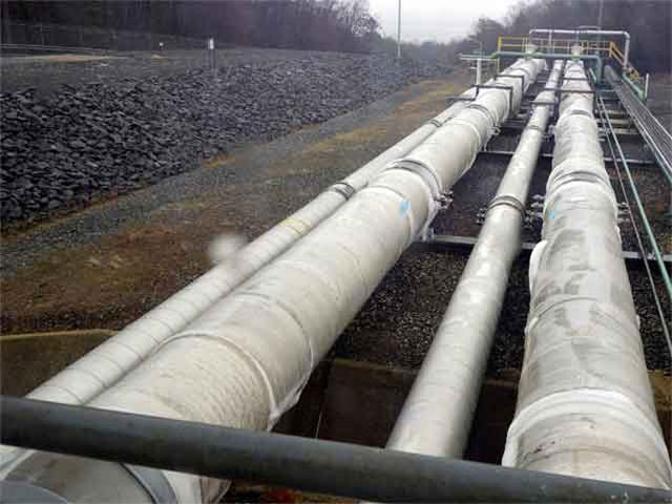Kenya Pipeline Company will be in the spotlight today after the board called for a special meeting with senior managers to explain a fuel loss that has now climbed to 23 million litres — and which insurance firms say they will not pay for.
During a stormy meeting with KPC officials, oil marketing companies refused to make consumer carry the burden.
The shocking revelation is contained in a paper prepared by the KPC Board finance committee, which indicates that the total loss from spillages and the gain/loss stands at 23 million litres as of September 30.
That means the oil marketing companies will be waiting to know the whereabouts of fuel valued at more than Sh2.3 billion, which they purchased.
FORENSIC AUDIT
The Nation on Friday reported the racket where fuel valued at Sh1 billion “spilt into the ground”, with no one informing the public.
It also contained demands by the oil marketing companies for a thorough forensic audit of KPC’s handling of its fuel.
The management under Mr Joe Sang, will be under pressure to show the board of directors where the spillage occurred and explain the variance in the book balances.
“All is well and there is no cause for panic. Please assure the staff in your divisions and departments that they should not be worried,” Mr Sang told senior KPC employees on Friday.
He also appointed a small team that included company secretary Gloria Khafafa “to immediately put together a comprehensive paper with detailed responses and evidence for purposes of briefing our board on Monday”.
During Monday’s meeting, the board will be told that insurance companies presented a report to KPC on August 10 telling it that the loss of 23 million litres of oil “is not payable”.
When Mr Sang was interviewed by the Nation last week, he said there was no such a letter and that the company was still negotiating with insurance firms.
Credible sources within KPC say officials have been running a racket that cooks books to overstate the amount lost from tiny leakages, which are then recorded as spillages.
This way, millions of litres of fuel are later stolen and sold illegally.
More is also stolen through the bogus recording of gain/loss of 0.25 per cent of all the fuel delivered in Mombasa, which the industry has always agreed on.

STOCK LOSS
While a gain/loss is determined by computing the difference between physical and book stocks, a true stock loss is determined by actual loss through theft, spillage or evaporation.
The paper to the board, seen by the Nation, still insists that in the last 15 months, KPC lost 11.46 million litres through spillages.
Five of these spillages occurred between KM391 and KM397, which is inside Lisa Ranch that is owned by Prof Phillip Mbithi, a former head of civil service and secretary to the cabinet.
When Nation journalists visited the farm, they did not see any evidence of such a spill, apart from the spill at the dam last year.
The farm manager informed us there was no spillage this year.
Mr Michael Mbithi, a director of Lisa Ranch, said the story was false and misleading.
“Since October 1, 2017 to September 2018. We have experienced 10 spills of differing severity on the pipeline,” Mr Mbithi said.
“In total, these spills have affected 103 acres of pasture and our main dam.”
Mr Mbithi — in an e-mail copied to KPC Corporate Communication manager Jason Nyantino and Ms Beatrice Orgut, the Safety Health and Environment head — said the “spill flowed for two kilometres before depositing the balance of the fuel in the dam after most of the oil percolated into the soil”.
TREAT THE SOIL
“The percolation is so great at certain areas that the soil bioremediation team had to dig six metres to treat the soil,” he added.
He said KPC had taken responsibility and “has been proactive in repairing the 38-year-old pipeline and in fast-tracking commissioning of the a new line to ease load on the old one”.
When challenged by this writer to take the Nation on a tour of the farm where the spillage of four million litres occurred, Mr Mbithi declined.
FUEL LEAKS
How deep this scandal of exaggerated fuel leaks goes and how many organisations are involved is still not clear.
The National Environment Management Authority, which ought to have spearheaded the cleaning of the spillage, has been silent on queries sent to the Director-General Geoffrey Wahungu.
We had asked Prof Wahungu if Nema is aware of such massive spillage and why the matter was never brought to the public attention.
We also wanted to know whether the authority had been involved in the clean-up.
OIL MARKETS
Last week, Environment CS Keriako Tobiko said his ministry was not aware of such spillage.
“I am hearing it from you,” Mr Tobiko told us.
In the contract between Kenya Pipeline and the oil marketers, KPC is supposed to obtain insurance to cover for petroleum products in its custody.

